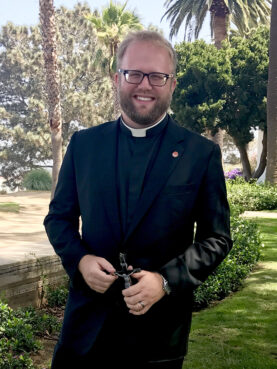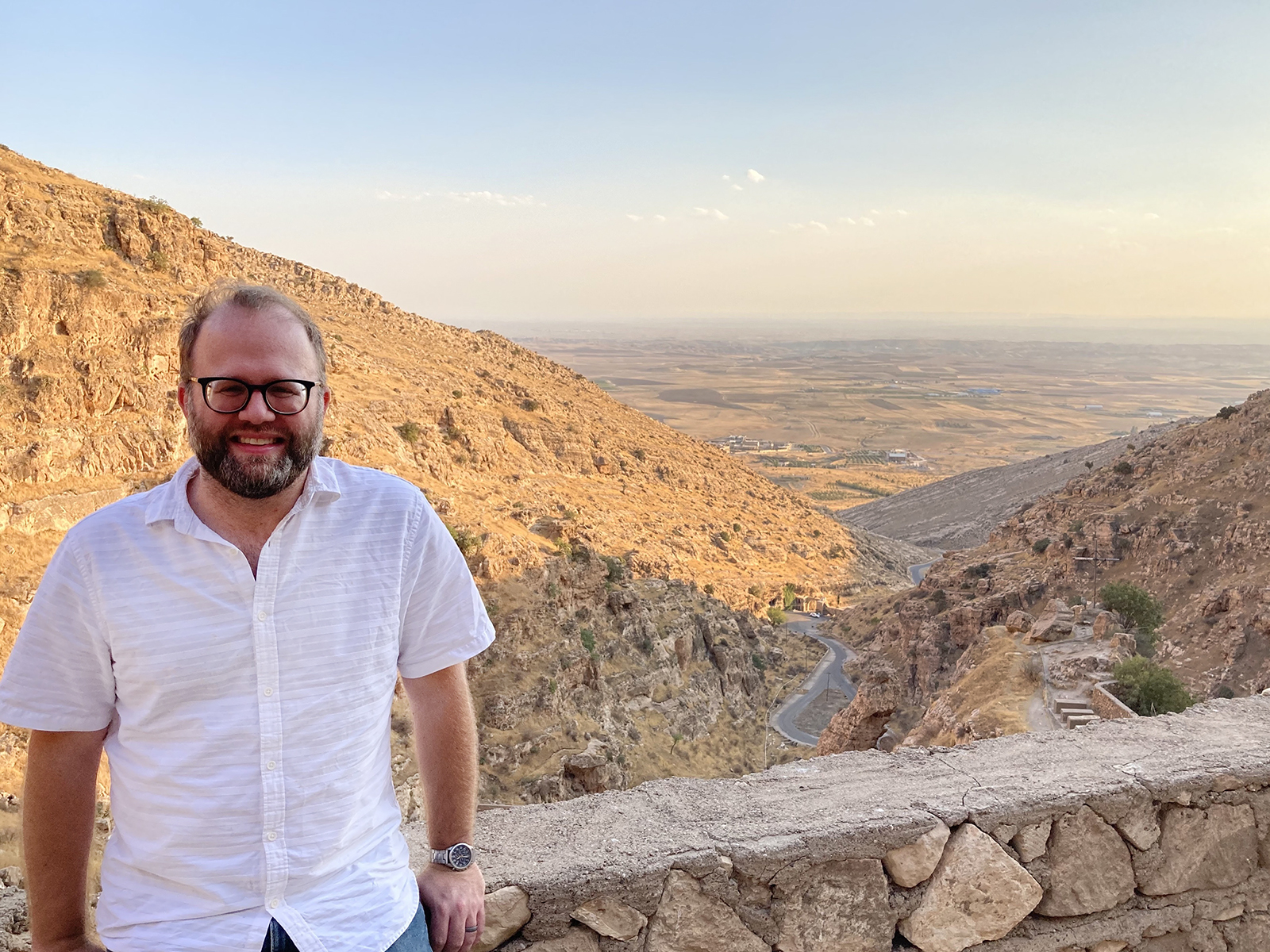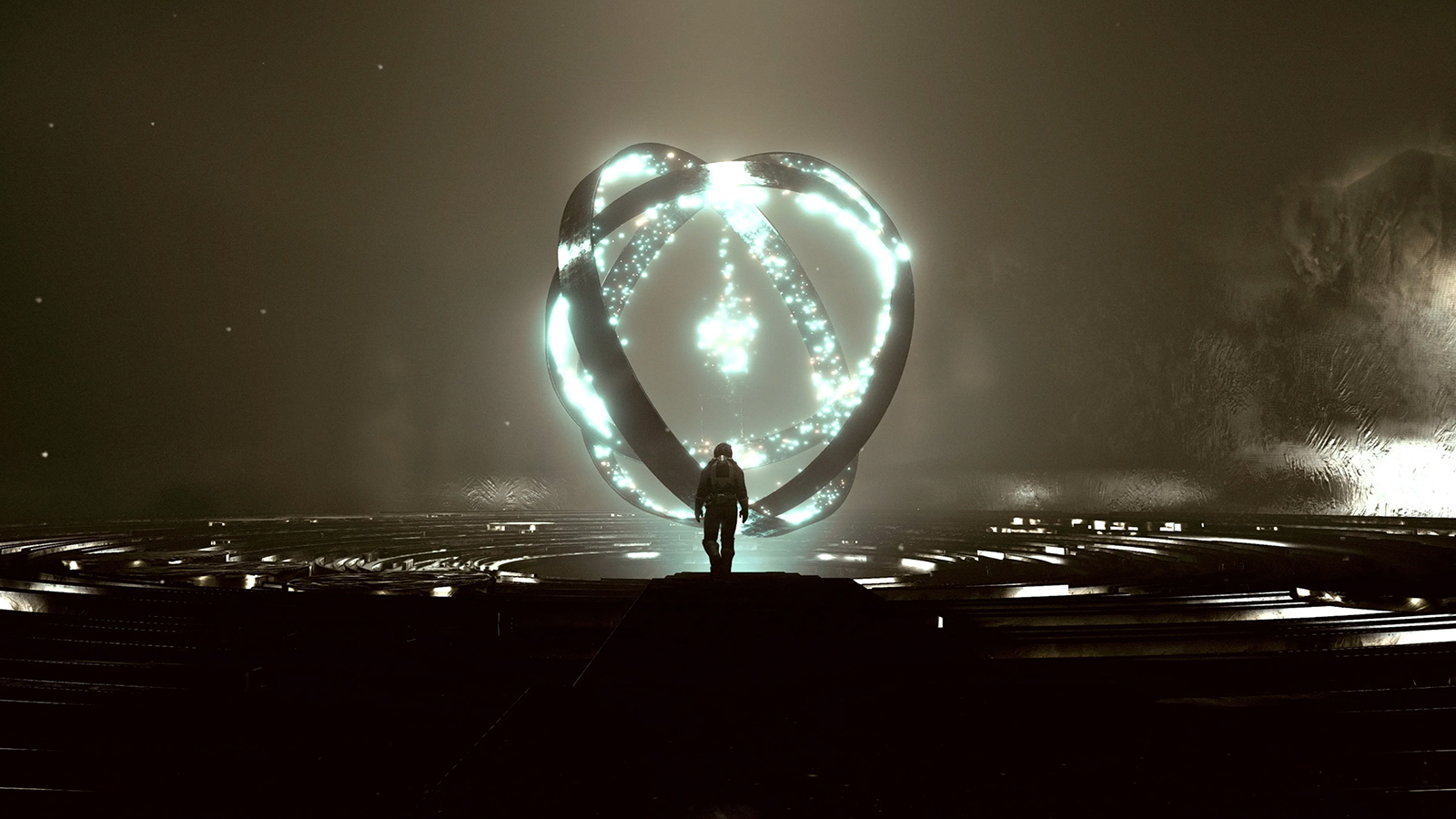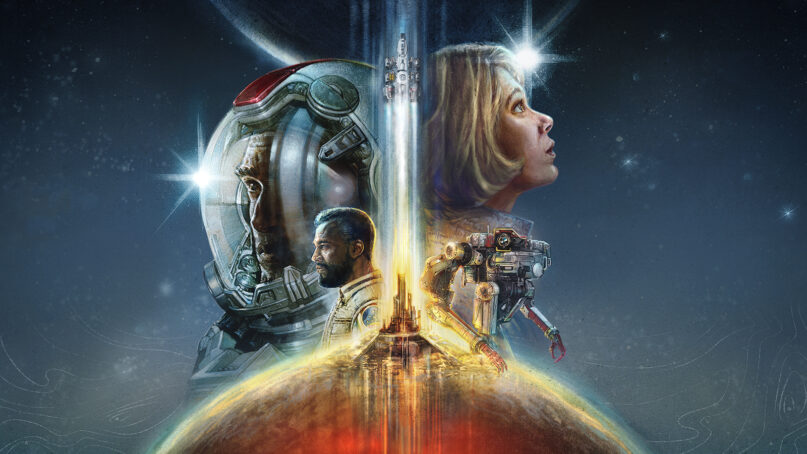(RNS) — Life was good for Shane Liesegang in the early 2000s.
In his 20s, he had a good job, plenty of friends, and lived in sunny Los Angeles.
“Things were pretty terrific,” he said.
And yet they weren’t. Instead, Liesegang was angry most of the time — at God, at himself, at the world around him and, often, at the 405, the main LA highway, known for its legendary traffic jams. One day, his blood boiling, Liesegang had had enough.
“I had this moment when I thought, this is ridiculous,” he said. “I can’t be angry at traffic. I can’t do anything about this.”
That realization led to small changes — counting to 10, taking deep breaths — which kept him from blowing his top. As his anger cooled, he went from being angry at other drivers to making excuses for them.

Shane Liesegang after pronouncing his First Vows as a Jesuit. (Photo courtesy of Liesegang)
“Someone would cut me off and I’d think, I bet she’s a cardiologist on her way to the ER,” he said. “Or he’s really trying to get home to see his kids. This really clicked for me.”
That experience also sent Liesegang on a spiritual quest, which would eventually lead him to leave his work as a designer for games like Fallout and Skyrim — some of the genre’s most popular role-playing games — and join the Jesuits, the same religious order as Pope Francis. Then, just when Liesegang thought he was done with video games, he got a call from an old boss, asking him to write the core texts for a space religion to be featured in Starfield, what would become a blockbuster video game.
The 41-year-old Liesegang’s life has been filled with surprises.
A self-described “pretty big nerd,” he grew up playing video games and taking part in school plays. In college, he studied psychology and computer science, tried his hand at playwriting and took a few media studies classes that included a critical look at video games. Those classes made him wonder if he might be able to combine his interests into making video games for a living.
After graduating from the University of Virginia, he headed to Carnegie Mellon, for a grad degree in entertainment technology. His combination of skills proved useful and opened doors in the video game industry, first at Electronic Arts, maker of Madden NFL and other popular games, and later at Bethesda, maker of Fallout, Skyrim and Starfield.
“I had this sense of story and character — but also knew how to work in a computer system and get it to tell these stories,” Liesegang said.
For a long time, religion was not part of his life. He’d been raised Catholic in Jacksonville, Florida, a Southern city where Protestants were in the majority and religion was something to argue about — not a source of meaning.
After his spiritual experience on the 405, Liesegang found his way to St. Monica, a Catholic parish filled with young adults who packed out weekend Masses. He described it as a spiritual community that didn’t feel churchy — where people wanted to learn about God, make friends and appreciate life.
“That was a great place to be, especially for a formerly very angry 25-year-old,” he said.
When he moved to Maryland to work for Bethesda, his interest in religion and video games began to merge. Though he didn’t talk much about faith at work, he’d often find himself working on liturgical texts or rituals for the fictional religions in the studio’s games. His experience at church gave him a feel for the language and cadence that rituals and religious texts need.

Shane Liesegang poses at the Rabban Hormizd Monastery in Alqosh, Iraq, overlooking the Nineveh Plains. (Photo courtesy of Liesegang)
While at Bethesda, he also began to feel a yearning to do something that might impact others’ lives in a way video games can’t. He also began to look into the Jesuits — in part to answer his curiosity about Pope Francis, the Jesuit cleric elected head of the Roman Catholic Church in 2013.
Liesegang eventually joined the Jesuits in 2015 — which led him back to grad school to study philosophy at Fordham University and then to Boston College, where as a Jesuit scholastic or priest in training, he’s currently studying theology and working with students. Liesegang also spent two years in Beirut, working with refugees as part of discerning what his future ministry could look like.
His past life in video games does come in handy while working with college kids. Once in a while, they’ll ask about his background and be taken aback when they learn he worked on Skyrim.

Starfield scene. (Image courtesy of Bethesda Game Studios)
On Starfield — a futuristic space exploration game that launched to wide acclaim this fall — Liesegang was asked to write a theology for the Sanctum Universum, one of the game’s three main religions. Along with exploring the star, battling space pirates and fending off galactic snake cultists, players search for a series of artifacts that grant them mystical experiences and superpowers.
Players have the option to join a religion, including the Sanctum Universum, which teaches that God can be experienced out among the stars. The faith’s texts, which players can find scattered throughout the universe, are more about philosophy and a search for transcendence than theology, said Liesegang, though there are hints of Catholicism in it. He did have to run his work at Starfield by his Jesuit superior. But Liesegang said that, as long as he was writing fiction and not really trying to start a new religion, he was on pretty solid ground.
His work on Starfield has led to questions about whether writing games could be part of his future ministry. Jesuits have a long history of working in the arts and as writers. Acclaimed playwright Bill Cain — who also wrote for the now-defunct television series “House of Cards” — is a Jesuit priest.

Shane Liesegang visits the Sea of Galilee in Israel. (Photo courtesy of Liesegang)
Jesuits have also excelled at astronomy, education and other pursuits, said Religion News Service columnist and Jesuit Tom Reese. Reese said Jesuits work closely with their superiors to find the right match for their ministry.
“There has to be a value-add that comes from the Jesuit participation,” he said.
Liesegang said that while he’s open to other video game work, he doesn’t see that as his calling. He doesn’t want to create Christian video games — or other faith-based entertainment. But he would be willing to work on other projects in the future.
Video games will shape his ministry in at least one way. As a designer, he learned to see fictional worlds as systems — ones that were designed on purpose by people — and to give the characters in the games the ability to impact those systems. The same is true for the real world. Most of our problems were created by people, he said. And if people made the world’s problems, they have the ability to change things.
Along with writing one of Starfield’s religions, he’s also a fan of the game and has spent a number of hours exploring the game’s fictional universe. He appreciates that the game’s designers included religion in the story. Liesegang said he’s been skeptical about science fiction visions of the future — like that of “Star Trek” — where religion disappears. As much as he loves “Star Trek,” he’s not buying it.
“It does not ring true to me,” he said. “Even if there was a departure from the world’s religions — and this is just me speaking — there would still be something there. Humans are spiritual creatures.”

Starfield scene. (Image courtesy of Bethesda Game Studios)





